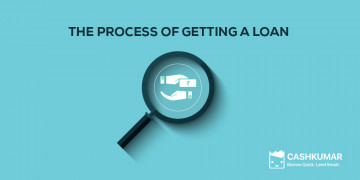 Before you take a loan, take your time and carefully consider if it is the right decision for you. As soon as your loan is approved, it basically implies that you have committed yourself to repay the funds along with interest within a specific period of time. Take into account the impact of taking out a loan on your future finances before you sign on the dotted line. Be absolutely sure that you have the income potential to pay it back or else it is bound to affect your debt-income ratio.
Before you take a loan, take your time and carefully consider if it is the right decision for you. As soon as your loan is approved, it basically implies that you have committed yourself to repay the funds along with interest within a specific period of time. Take into account the impact of taking out a loan on your future finances before you sign on the dotted line. Be absolutely sure that you have the income potential to pay it back or else it is bound to affect your debt-income ratio.
It may be tempting to take out a loan, but before that, answer these five key questions:
Is This Purchase Necessary Right Now?
Many purchases may look like it is totally necessary to get them at that point of time when in reality you can try and get by without them or save up enough without having to purchase by taking out a loan.
Can I Purchase Something Less Expensive Instead?
If you are making a big-ticket purchase on a loan, like a car for example, you may be tempted to go for a better model. Instead, stick with the original model that you had in mind or scale back to a lower version.
Can I Afford to Make the Payments?
Consider your financial limitation and be honest about your repayment potential. When you take out a big loan, you may have to forgo other pleasures in life, for example, a family vacation or shopping. Additionally, take into account your debt-to-income ratio as you don’t want this to be higher than 50% which should ideally include your home loan too.
How Fast Can I Pay It Off?
Before you take out a loan, think about the time period within which you need to pay it off. Bear in mind that it is hard to create wealth for yourself when you are debt ridden and paying interest to lenders. Therefore, the sooner you pay it off, then faster you will be able to achieve your financial goals.
What Happens If I Can’t Pay It Off?
It may so happen that you may be out of employment during the repayment tenure of the loan. In such a situation, you will be under tremendous pressure to look for alternative employment as fast as possible, so that you do not build up on your late EMIs or skip payments, that will impact your overall credit score. Thus, have adequate cushioning and factor in such emergency circumstances before you take on additional debt.
Now that you have answered all the ‘ifs’, taking out a loan can be a great way to meet your personal requirements. For an individual, financial institutions in India offer several loan related products such as:
- Personal Loans
- Car or Two-Wheeler Loans
- Home Loans
- Education Loans
- Gold Loan
- Loans Against Securities
Both banks and non-banking financial institutions offer loans in India. The normal process when a loan application is approved includes disbursing the loan amount into the borrower’s bank account. This is to be paid back to the financial institution in EMIs or equal monthly installments. Financial institutions offer loans for a number of purposes. However, as a borrower, you should know when to take a loan.
Here are some important instances when one should apply for a loan:
Medical Emergencies:
If there is a medical emergency in the family, it is normal to be mentally and financially stressed. If your medi-claim does not suffice in terms of paying for the hospital bills, you have the option to apply by personal loan online. With a personal loan, you will be able to take care of additional medical expenses that may not be covered by your health insurance.
Higher Education:
Your children may have aspirations to study overseas or possibly enroll into a program in medicine, architecture or aviation. You may not have enough financial provision to cover the cost of such expensive programs either in India or abroad. Education loan is the answer. Most nationalized, private banks and non-banking financial institutions in India offer education loans. Interest rates are competitive and tax deductible. Repayment starts once the program has been completed by the student.
Debt Consolidation:
Several circumstances in your life may lead to acquiring a lot of debt spread over multiple channels such as credit cards, any previous loans, etc. Credit cards have high interest rates and late payment charges. Accruing it over a significant period of time can lead to more debt. The best way to deal with this is to opt for a debt consolidation loan which are offered by select financial institutions in India. Having your debt in one place and paying one installment is a lot better than handling multiple payments in a month. This will also help to erase the debt faster.
Big Ticket Purchases:
Most young people these days invest in a car and eventually a home after earning for a few years. For any high value purchase such as this, all financial institutions have car and home loans available where the product or property acts as a collateral until the loan is paid off.
Weddings:
Weddings in the Indian context are expensive affairs. While you may have saved up significantly for the big day, many times, due to rising costs, the savings may not fully cover the expenses of the wedding. The best bet is to opt for a wedding or a personal loan that will help tide you over the immediate financial implications of the wedding and you can pay back to the financial institution in easy installments over a stipulated period of time.
Click here to know your Loan Eligibility



